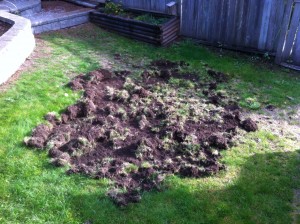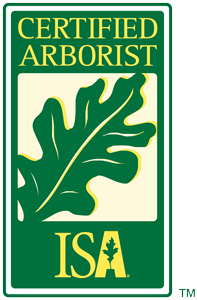This blog is a treat. I am still upset about narrowly missing Todd at last year’s Can-West urban forestry symposium in Abbotsford. I was able to at least send him a few questions which he generously answered. I believe every landscaper and green professional needs to have one experienced journeyman in his or her network. It turns out that my municipal boss from 2014 once apprenticed under Todd and she had lots of great stories to share. Enjoy.
Vas: I know you are an experienced journeyman, teacher and North Shore News writer. Can you briefly tell us about yourself?
Todd: I have worked within many specific fields in horticulture over my 28 year career. I started out as a landscape builder on large townhouses and apartment projects installing all hardscape and softscape features. I was a certified climbing arborist but left that work because it involved killing more trees than saving trees. I worked as a grower of ornamental and food crops in glass greenhouses, polyhouses and on a small farm.
I was the Garden Director of the Park and Tilford Gardens in North Vancouver where we developed and maintained the 3 acre botanical garden with its six distinct theme gardens, two greenhouses and the commercial landscape of the Park and Tilford Shopping Centre. At Park and Tilford along with my administrative and business responsibilities, I was also the chief field instructor for students from Capilano College whom trained with us to learn practical horticulture skills.
For a short time I was associate editor of Landscape and Groundskeeping magazine and for several years I was the editor of the Vancouver Rhododendron Society newsletter called “Indumentum”. I am the co-creator and former chief instructor of the Horticulture Training Program at the University of British Columbia Botanical Garden and Centre for Plant Research. I was the gardening columnist for “Dig Deep” in the North Shore News for 11 years but I left that job in December 2015.
I worked as the Manager of Parks Planning and Design for the City of Port Coquitlam where I co-designed and project managed the RailSide Skatepark, park upgrading, drainage, road construction, sport field construction and project management of the Gates Fieldhouse building among other projects.
Throughout many of those years I have run my own landscape design and construction business creating sustainable outdoor living spaces for residential clients. I have also been a curriculum expert, contributing content writer and chair of the provincial Trade Advisory Committee for practical horticulture apprenticeship in British Columbia. I could go on but that’s probably enough.
Vas: One of my former municipal bosses apprenticed under you at the Park and Tilford Gardens and she told me many great stories. Are you still teaching and sharing your knowledge?
Todd: Not as much as I would like to but I am currently looking for opportunities to write, teach and mentor horticulturists, gardeners and the general public. Whether that be writing for a magazine, organization, company, blog or website. Or hands on working and teaching.
Vas: What projects did you work on in 2015?
A fair bit of consulting for property management companies writing landscape specifications and doing contract supervision and landscape inspection. I wrote and revised several learning guides for HortBC which oversees the provincial horticulture apprenticeship in B.C. I built several interesting gardens for residential clients. I am also mentoring a few of people on an informal basis so I have consulted, advised and worked on some of their projects this year.
Vas: I’m still upset about narrowly missing you at the 2015 Can-West Hort Show in Abbotsford. What does a journeyman do to stay current in his field?
Todd: Acquire information from wide and far and as many sources as possible. Not everything is on the internet – you have to get out there and see it and live it. Journeyman should also visit trade shows, go on field trips or garden tours with colleagues to see what is happening in the world. As well, everyone should take on projects that stretch their abilities – so they can grow intellectually.
Vas: What advice would you give to a new landscape company employee starting out in 2016 and facing miles of lawn mowing?
Find another job. Or risk losing your intellect, motivation and your soul.
Vas: What three green books and periodicals stand out as must-read?
Todd: Anything by Michael Pollan on growing healthy food. There’s a lot of stuff out there to read but much of it is below my level or someone is trying to sell something, so finding captivating information is hard for me. I search for information from universities focused on horticultural research, global info organizations and non-governmental organizations focused on affecting change. Two good examples are www.panna.org, and www.gmofreeusa.org. For plant identification a good site is www.oregonstate.edu/dept/ldplants I also regularly read news and updates from 70 plus websites, Facebook and blogs concerned with gardening, the environment and growing healthy food.
Vas: Imagine your front lawn is a disaster thanks to European chafer beetles. What would you do with it?
Todd: Rototil the entire lawn into the soil as a green manure. Then replant new shrub beds and install walkways, patios, trees with groundcover, veggie gardens or anything that suits the client’s lifestyle. But I would not replant the resource sucking lawn monster. Lawn is a cultural norm of the last century during our age of innocence. Lawns no longer fit the new environmental and social awareness realities of this century. Most of my clients simply do not want to spend time or money maintaining a lawn can’t be watered during water restrictions or may be re-infected by chafers.
chafer-infested lawn damaged by animals
Vas: What shifts do you see happening if our summers stay hot and dry?
Todd: More low flow or drip irrigation systems are being installed as clients try to adapt. A greater focus on drought tolerant plants is somewhat misguided in our climate where we receive abundant rainfall during winter which rots out many drought tolerant plants such as Festuca species. More people are realizing that mulching is an efficient and cost effective method to reduce drought stress. And most importantly, always dig deep to enrich and amend the soil before planting.
Vas: What are some of the most pressing issues facing horticulture today?
Todd: I think as many other people do, that society’s heavy reliance on pesticides in horticulture, gardening and agriculture is causing problems in our environment and with our children’s health. We are not being told the truth about the long term negative affects of poisonous pesticides, especially where children are concerned. Take for example the fact that pesticide residue rates and application rates are set for adult body weights using LD50 and LC50 rates. If an adult weighs 72 kilograms (160 pounds) and the exposure rate is set for the adult weight, a child who weighs half or less of an adult will receive twice the dose if exposed to pesticide residue on food or in the garden. And children have development tissue and organs making them far more susceptible to pesticide exposure. Not to mention that consumption of pesticides in the world is now being measured by the millions of metric tonnes. (One tonne of pesticide = 2200 pounds = thousands of Big-Ag profit dollars).
Among the many other issues facing horticulture toady, employee recruitment and retention has become very important. Low wages in the industry, difficult working conditions and intense competition have made finding and keeping employees difficult for landscape business owners. Another facet of the problem is that even a waitress can make more money than a landscape labourer. And the waitress gets to work indoors in nice surroundings. Fewer and fewer young people want to work in the “dirt” digging or carrying heavy materials all day, especially when there are high paying jobs in the technology sector. In other trades like plumbing, electrical, welding and pipefitting wages start at $25-$30 per hour, compared to $15-$18 for starting wages in landscaping. As another example, nowadays people can earn $30,000-$100,000 or more, just by starting and monetizing a website or YouTube channel while they sit in their pajamas creating and uploading content.
Vas: Do you have any plans to collect your North Shore News articles into an eBook?
Todd: I am writing a book on pruning and have plans for other books in the series. But finding time to write is difficult. And with the large amount of gardening chatter on the internet, often from people who are not trained or experienced in horticulture but have a million followers, I doubt whether my book(s) will ever be seen or read amongst the noise.
Vas: Can I become a rich employee or is starting my own company inevitable?
Todd: Being “rich” is a cultural notion applied to monetary gain only. While money is important, life is about more than just money. For some people having a steady job with benefits is enough. For others, pursuit of more and more money is the only thing that motivates them regardless of whether or not they like the work or the people. Some of my friends have stayed in reasonably good paying jobs because there’s security but they don’t necessarily love or even like the work.
At the CanWest show in September 2015 I attended a lecture on pests and disease of British Columbia given by a reputable tree company. During the lecture I watched as a municipal employee from Coquitlam sat scrolling though her smart phone for the entire presentation on some website or Facebook perhaps. She made no notes and learned nothing. I thought why did you waste your employer’s time and money? What did you learn? Nothing is the answer because she is simply punching the clock and stealing a paycheck. I was very offended by her actions and went over to tell her so at the end of the lecture.
In comparison to their parents of the last century, Millennials of this century have pioneered the concept of creating and working at a job they love and, working with friends or people they really get along with. The synergy of working with like-minded people doing something you love produces high quality outcomes. By comparison, showing up everyday to just to punch the clock for paycheck seems like a waste of time and potential.
I must have work that engages and challenges me while giving me a sense of purpose; otherwise I am bored. I do my best work when I am challenged just beyond my abilities. As the saying goes, “Life begins at the edge of your comfort zone.”
Todd Major.
Cell/text: 604.512.1826
Email: stmajor@shaw.ca
Journeyman Horticulturist,
Garden Designer and Builder
Teacher, Skills Trainer and Organic Advocate,
Former North Shore News Gardening Columnist
Web link: http://www.nsnews.com/authors?author=Todd%20Major





